
1 Larkspur
DELPHINIUM SPP., ZONES 3 TO 7
Although it’s a bit picky, larkspur is well worth the effort when spires of blue flowers reach for the sky. Delphiniums require full sun and organic, moist, well-draining soil. Avoid planting it in windy locations, and cut it back around midsummer for a second set of flowers.
Why we love it: Delphinium exaltatum is native in the East and sturdy enough to grow in Zones 4 to 8.
2 Flowering tobacco
NICOTIANA ALATA, ANNUAL
Plant flowering tobacco along sidewalks, next to your deck or patio, or near open windows where you can enjoy the lovely evening fragrance. This adaptable plant reseeds readily and grows best in full sun and rich soils. It also comes in a variety of colors and sizes.
Why we love it: The trumpet-shaped flowers and bold leaves make it a standout in containers and garden beds.
3 Virginia bluebells
MERTENSIA VIRGINICA, ZONES 3 TO 9
Add some blue to those shady spots with this vigorous eastern native. Grow in moist, rich soil and combine with daffodils for a striking spring display. Add hostas and other shade-loving perennials to mask the fading foliage later in the season.
Why we love it: Hummingbirds, bumblebees and other pollinators appreciate this early source of nectar.
4 Wild petunia
RUELLIA HUMILIS, ZONES 4 TO 8
Each blue flower lasts only one day but is quickly replaced, creating a season-long color. It reseeds readily, so grow it where it can weave through and commingle with neighboring plants, or deadhead it to prevent reseeding. Grow this 12-inch-tall plant in full sun or a spot with late-afternoon shade.
Why we love it: It’s deer and rabbit resistant and adaptable to dry and wet soil.
هذه القصة مأخوذة من طبعة June/July 2020 من Birds & Blooms.
ابدأ النسخة التجريبية المجانية من Magzter GOLD لمدة 7 أيام للوصول إلى آلاف القصص المتميزة المنسقة وأكثر من 9,000 مجلة وصحيفة.
بالفعل مشترك ? تسجيل الدخول
هذه القصة مأخوذة من طبعة June/July 2020 من Birds & Blooms.
ابدأ النسخة التجريبية المجانية من Magzter GOLD لمدة 7 أيام للوصول إلى آلاف القصص المتميزة المنسقة وأكثر من 9,000 مجلة وصحيفة.
بالفعل مشترك? تسجيل الدخول
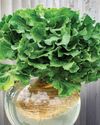
Basics of Hydroponics
Use these top tips and plant picks to have a successful soil-free garden
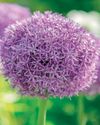
Rooted in Resilience
These hardy perennials will thrive in most zones
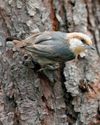
Social and Supportive
Brown-headed nuthatches take a helpful approach to raising their young
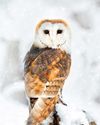
All About Owl Pellets
And why you should give a hoot about them
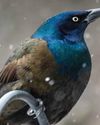
Ask the Experts
Advice from our pros about houseplants, bird feeding and more
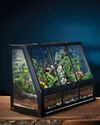
BRING THE OUTDOORS IN
Making a terrarium is about as close as you can get to a Zen DIY project. Once you have gathered the proper materials and squared away your plant selections, it's as simple as layering it all together and watching your mini ecosystem thrive. Here, I'll walk you through my foolproof process and cover all the required elements for good filtration, healthy soil, strong root growth and resistance against fungus and disease.

GROW THIS. NOT THAT
Six easy-to-grow houseplants—and six that may not be the right choice for you
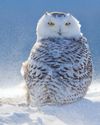
Winter MAGIC
Forecasts may be frigid, but grab your binoculars because birding opportunities are still incredible
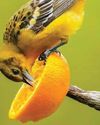
Sense or Nonsense? - Why some birds can taste and smell - but others can't
Does a porcelain berry taste like a blueberry to a gray catbird? Does a block of lard smell like frying bacon to a northern flicker? The short answer is no. While some avian species do have a well-adapted sense of taste or smell, they can't distinguish between flavors and odors the way humans can. They're not picking up every ingredient in the suet you put out, says José Ramírez-Garofalo, an ornithology researcher at Rutgers University in New Jersey and the director of Freshkills Biological Station in Staten Island, New York.
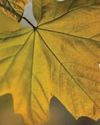
Maple Mania - Amazing facts about this fall foliage mainstay
Amazing facts about this fall foliage mainstay